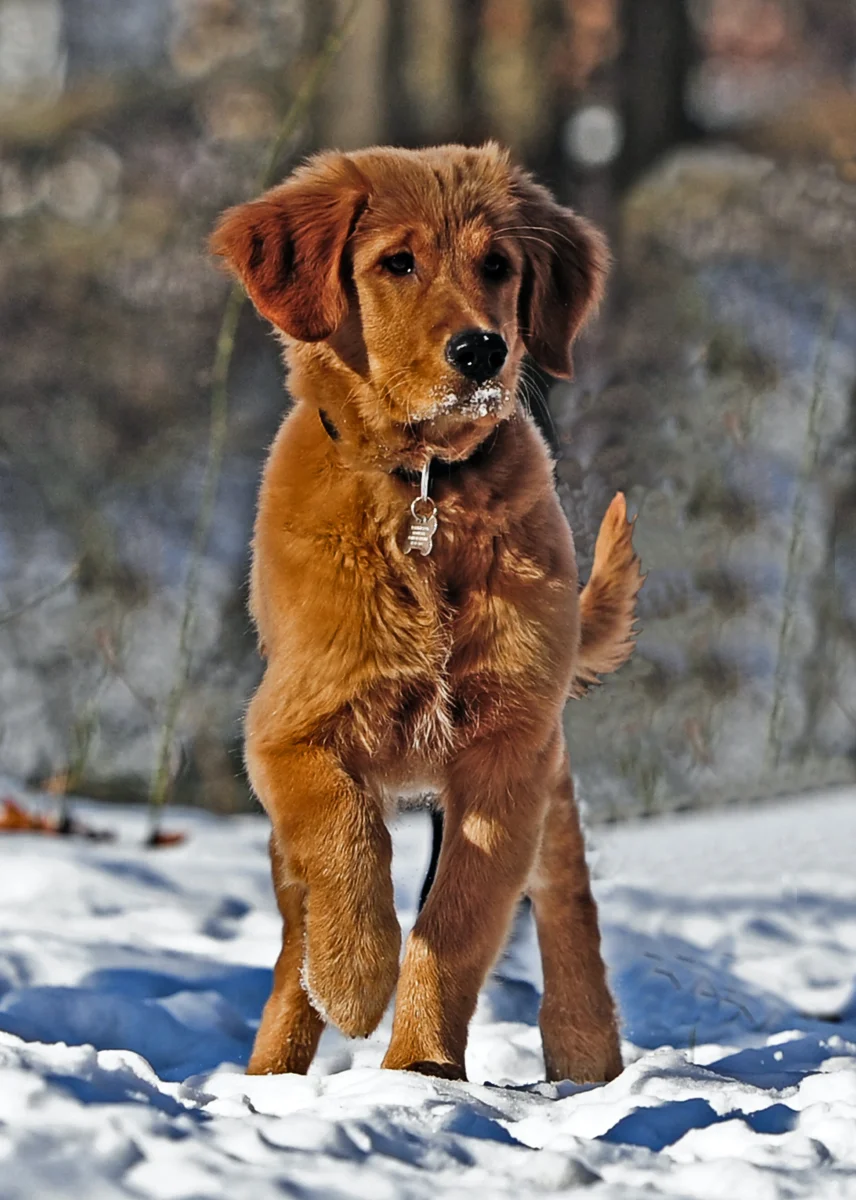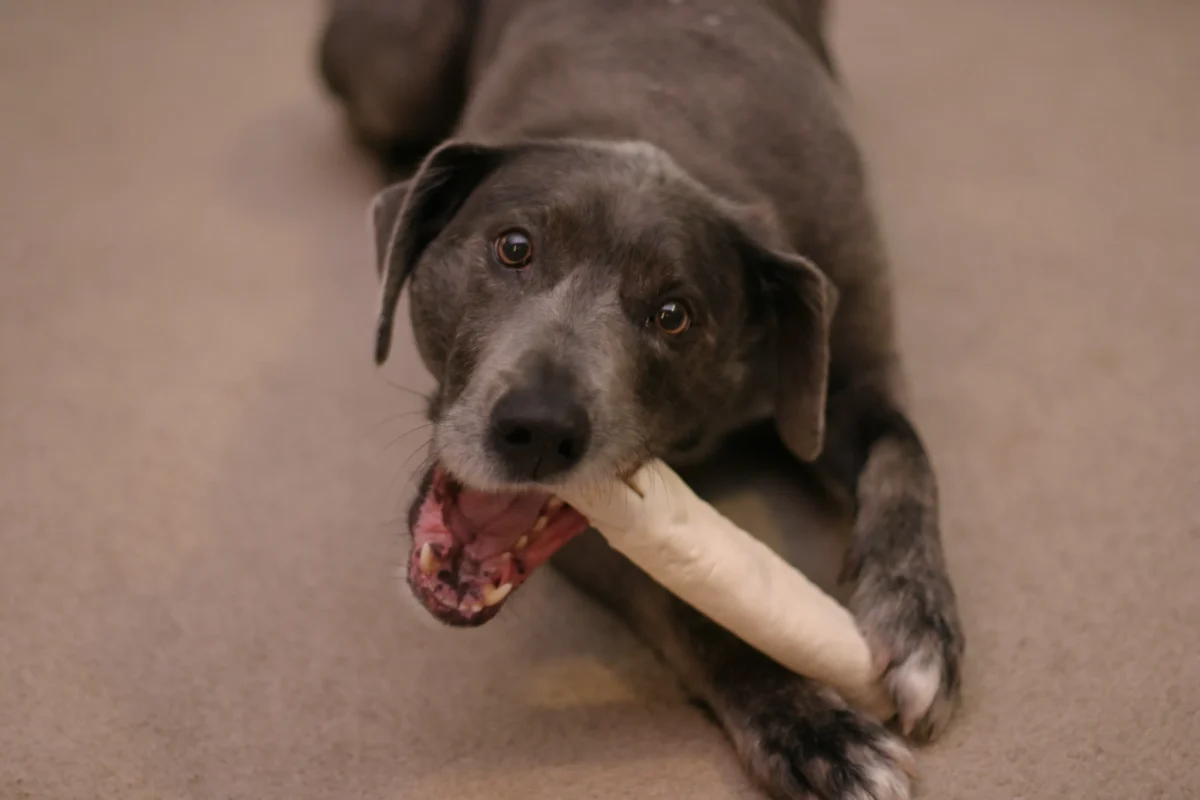Boxer dogs are a loving breed and are fiercely loyal to their owners. They were originally bred as working dogs, but their athletic build and powerful jaws make them excellent guard dogs.
Boxers are also very intelligent, which makes them easy to train. However, all this strength and power can make boxers very aggressive if they are not properly socialized and trained. Therefore, it is important to consider whether or not a boxer is the right breed for you before bringing one into your home.
Basics About Boxer Dogs
Boxers are strong enough to knock down an adult human with ease. If a boxer gets excited or angry, they could unintentionally injure someone by knocking them over. Additionally, they have powerful jaws that can cause serious damage if they bite.
Boxers have a lot of energy. They need plenty of exercise to stay healthy and happy, and they will become easily bored if they don’t have enough to do. This can lead to destructive behaviors like chewing on furniture or digging holes in the backyard.
They are extremely determined and stubborn. Once they set their mind to something, it will be very difficult to change their course. This can be both good and bad – it means they are great at following commands when properly trained, but it also can be very difficult to live with, if you don’t want them to do something.
Boxer Dogs at a Glance
Size: Boxers are medium to large-sized dogs. Males typically weigh between 50 and 80 pounds, while females usually weigh between 40 and 60 pounds.
Coat: Boxers have short, smooth coats that are easy to care for. They come in various colors, including brindle, fawn, and black.
Temperament: Boxers are known for their strength, power, and determination. They are also very intelligent, which makes them easy to train. They have an aggressive nature, which comes out in full force when they are not trained properly and don’t receive attention.
Height
- Male: 24 in.
- Female: 22 in.
Features: Brachycephalic (squashed face), floppy ears (naturally), droopy eyes,
Expectations
- Exercise Needed: More Than 40 Minutes/Day
- Energy Level: Very High
- Longevity Range: 8 to 10 Years
- Drooling Level: High
- Snoring Level: Moderate
- Barking Level: Low
- Digging Level: Low
- Attention Needs: High
Health Information
- Separation Anxiety: High
- Allergies: Low
- Dietary Needs: 3 to 5 cups of high-quality dry food per day, divided into two meals.
*Boxers are voracious eaters and will overeat if given a chance. It is important to measure their food carefully and avoid giving them table scraps.
Avoid foods with a lot of fillers, such as corn, wheat, and soy. Instead, choose a food that is high in protein and fat. This will help your boxer maintain their energy levels and muscle mass.
Boxers are very active, so they will need food that is high in calories. A good quality dry food should have at least 30% protein and 20% fat.

Common Health Issues
« The Ultimate Guide to Potty Training Your Golden Retriever Puppy
Do Golden Retrievers Bite? »
Boxers are generally healthy dogs, but you must be aware of their problems. These include hip dysplasia, elbow dysplasia, cancer, and cardiac problems.
Hip dysplasia is a condition where the hip joint does not form properly, leading to pain and lameness. Elbow dysplasia is a similar condition that affects the elbow joint. Both of these conditions can be diagnosed with x-rays and treated with surgery.
Cancer is the leading cause of death in boxers, and they are especially susceptible to tumors of the bone marrow. This is why it is important to take your boxer to the vet for regular check-ups and to have them screened for cancer yearly.
Cardiac problems are also common in boxers, and they can be diagnosed with a simple heart test called an electrocardiogram (EKG). Treatment for cardiac problems will vary depending on the severity of the condition but may include medication or surgery.
Boxers are strong, powerful dogs that need plenty of exercise and attention. They can make great pets if you are prepared to give them the time and energy they need. However, they are probably not the right dog for you if you are not willing to commit to their care.
Boxer Dogs Bite Intensity
The boxer dog breed has a high prey drive, making them aggressive towards smaller animals. This same trait, however, can also make them excellent guard dogs. They have a very strong bite and can cause serious damage if they are not properly trained.
Their bite force is at 230 lbs (PSI). It is believed that a boxer dog’s bite is considered one of the top five powerful bites in different dog breeds.
Boxers were originally bred to be fighting dogs and have the jaw strength to match. Their bites are so powerful that they can break bones. This is why it is so important to socialize and train your boxer from a young age. If you do not give them the necessary attention, they may become destructive or even dangerous.
While the boxer dog breed is not considered one of the most dangerous dog breeds, they are still capable of causing serious harm. If you are considering getting a Boxer, make sure you are prepared to commit to their care and training.
How to Engage Your Boxer Dog
Boxer dogs are quite active and playful. They need plenty of mental and physical exercise to stay happy and healthy. Here are some ideas on how to engage your boxer:

- Get them involved in an obedience or agility class. This will allow them to run, jump, and play while learning new commands.
- Take them on long walks or runs. Boxers have a lot of energy, so they will appreciate the chance to burn off some steam.
- Play fetch with them in the yard or at the park. They love to chase after balls and other objects.
- Give them interactive toys to keep their minds challenged. Treat
Conclusion
Overall, boxer dogs are incredibly strong animals. They can be loyal and loving family pets, but it is important to know their strength and energy level before bringing one into your home. With the right training and socialization, a boxer can be a great addition to any family.








